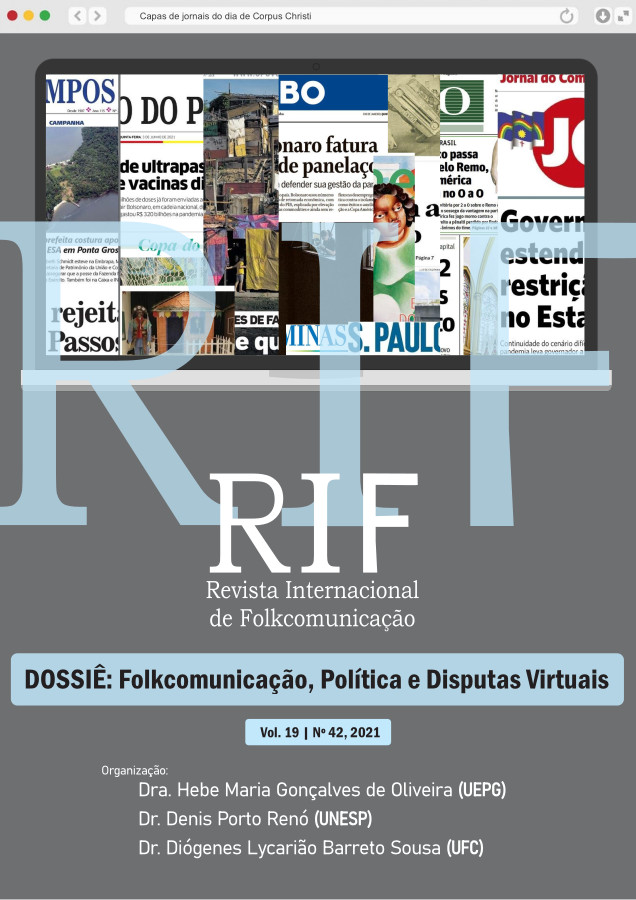Resistência civil, ativismo (folk)midiático e ciberativismo: o caso da sociedade boliviana
DOI:
https://doi.org/10.5212/RIF.v.19.i42.0013Resumo
É na teoria da folkcomunicação, proposta pelo autor Luiz Beltrão, na década de 1960, que este artigo sustenta seus aspectos teóricos e metodológicos, pois o ativismo folkmidiático cria mecanismos de leitura, identificação e ações em canais próprios, capazes de superar a pós-verdade — a distorção deliberada da realidade. Dessa forma, objetiva-se evidenciar o papel dos ativistas folkmidiáticos nas rupturas democráticas da sociedade boliviana, num contexto no qual o ciberespaço parece ser uma maneira eficaz de construir novas formas de interação social, que, em conjunto com a participação cidadã nas ruas, pode produzir ações e efeitos na realidade. Resistência civil; Ciberativismo; Ativismo (folk)midiático; Folkcomunicador.
Downloads
Publicado
Como Citar
Edição
Seção
Licença

Este obra está licenciado com uma Licença Creative Commons Atribuição 4.0 Internacional.
Os autores são responsáveis, em qualquer que seja o formato do texto, pelas opiniões expressas ou indiretas presentes em seus respectivos trabalhos, não endossáveis pelo Conselho Editorial e pelos editores da Revista, bem como pela autenticidade do trabalho. Ao publicar trabalhos na Revista Internacional de Folkcomunicação, os autores cedem automaticamente os direitos autorais à publicação para veiculação das produções acadêmicas, sem ônus para a Revista. Os autores detêm os direitos autorais do texto para o caso de publicações posteriores e concedem à Revista Internacional de Folkcomunicação o direito de primeira publicação, com o trabalho simultaneamente licenciado sob a Creative Commons Attribution License, que permite o compartilhamento do trabalho com reconhecimento da autoria e publicação inicial nesta Revista. Por serem publicados em revista de acesso livre, os artigos são de uso gratuito, com atribuições próprias, em atividades educacionais e não-comerciais, sendo permitida a publicação simultânea em repositórios institucionais.































